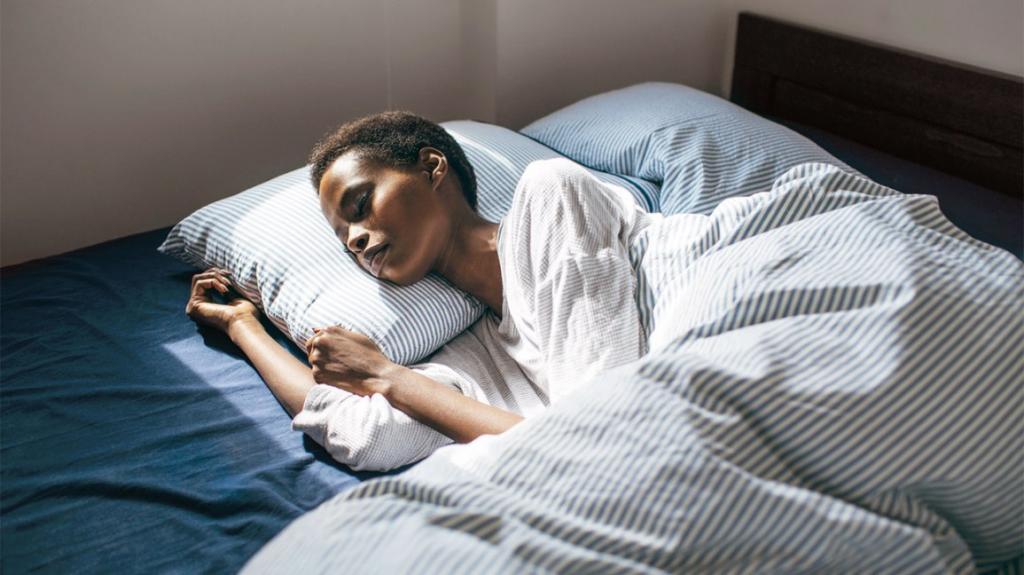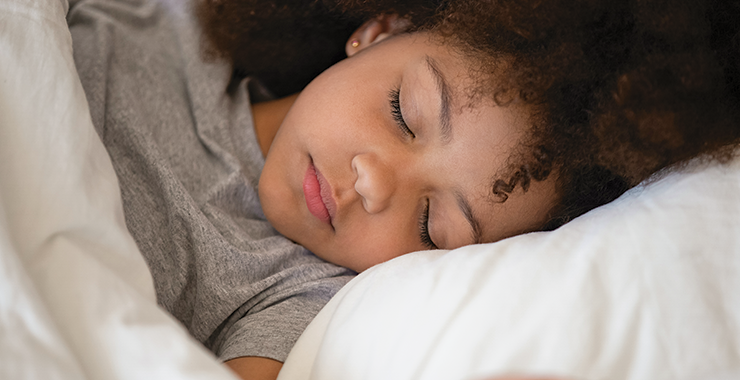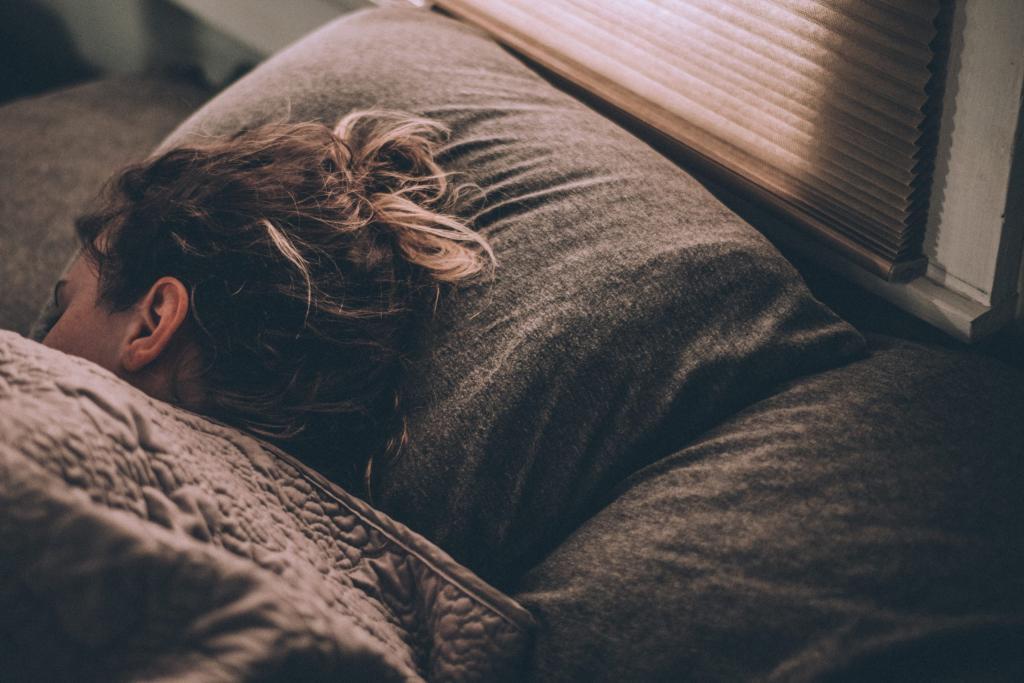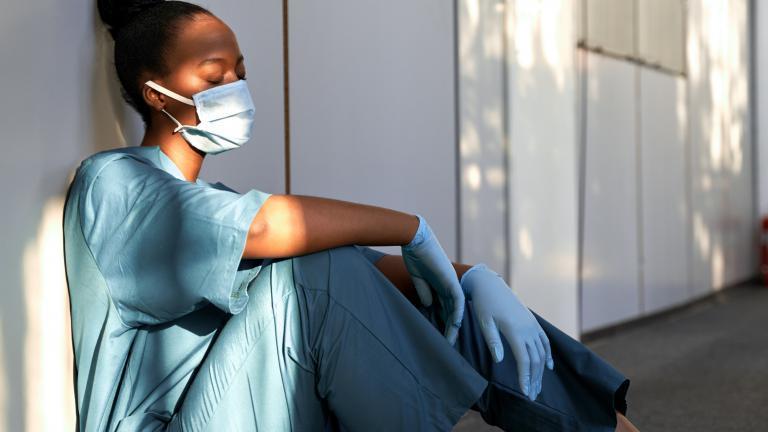Many people are suffering from insomnia during the coronavirus epidemic and are unable to sleep. In this scenario, it’s most likely stress-related, but there are other possibilities.
Did you know that sleep deprivation lowers your immune system, making it more difficult to fight off viruses and other germs? We’ve put together some advice on how to get a good night’s rest and why it’s so important.
What Are the Challenges to Sleep During a Pandemic?
The coronavirus pandemic has created a slew of new difficulties for even those who had never had sleep issues before the epidemic began.
Pandemic-related insomnia is now referred to as “coronasomnia” by experts. To prevent the negative effects of stress and anxiety on our sleep and mental health, it is best to adhere to healthy sleep hygiene habits.
The pandemic of coronavirus is not the same for everyone. Of course, those who are infected with the virus and those who treat them are the ones who bear the brunt of the disease’s immediate effects. In any case, the effects — financial, mental, and emotional — have been widespread, and they now provide considerable obstacles to rest.
Disruption of Daily Life
People of all ages and professions are affected by social isolation, school closures, quarantines, and working from home.
- Adapting to a new daily routine or the absence of one might be challenging.
- If you don’t have regular “anchors” like picking up the kids from school, getting to work, going to social engagements, or going to the gym, it can be difficult to keep track of time and even the day.
- A lack of light-based cues for awake and sleep, called zeitgebers, that are critical to our circadian rhythm may occur when we are confined to our homes with low levels of natural light.
- If you don’t have a job right now or your weekly hours have been reduced because to COVID-19, you could be tempted to oversleep every morning. Even if you use an alarm, sleeping longer than seven to eight hours a night can make it tough to get out of bed in the morning. Gloomy moods, irritability, and lack of concentration are all possible side effects of excessive sleepiness.
Anxiety and Worry
The COVID-19 pandemic is causing a lot of anxiety. To avoid getting sick or spreading the disease to others, many people are concerned about obtaining the coronavirus. As a result, many people worry about the health and well-being of close family members and friends who are older or have preexisting problems.
All of us are feeling the effects of the economic downturn. It’s fair to worry about income, savings, and making ends meet as the economy sputters and job losses grow.
This epidemic still has so many unknowns — how long lockdowns will last, whether hospitals can handle the crisis, when life will return to normal — and such uncertainty typically produces worry that interrupts sleep as a racing mind keeps the body tossing and turning……….
Depression and Isolation
Even more devastating for those who have lost a loved one to COVID-19 is the isolation and melancholy that this catastrophe can inflict. Isolation at home can increase grief and despair, and both are known to cause serious sleep issues.
More than just a sense of sadness can characterize depression. Other symptoms include a loss of interest or pleasure in activities, feelings of hopelessness or worthlessness, and either a low or excessive hunger. Depression rates increased during the pandemic, according to the research, which also found that sleep deprivation and an increase in alcohol and tobacco use were contributing factors.
Sleep patterns can be disrupted by the pandemic’s impact on our mental health.
Greater Family and Work Stress
The coronavirus is putting a lot of people’s families in danger. Anyone can feel the weight of canceled excursions, separation from friends, and too much time at home. Working from home or raising a family with children who are used to being in school can be challenging, resulting in high levels of stress and tension, both of which have been shown to interfere with a good night’s sleep.
Bạn đang xem: What Are the Challenges to Sleep During a Pandemic? How to Sleep Better? Update 07/2025
Excess Screen Time
A lack of social interaction can lead to a significant increase in screen usage, whether it’s checking the news on your phone, attending a Zoom with your family, binge-watching Netflix, or working from home.
The quality of your sleep may be harmed if you spend too much time in front of a screen at night. Using a screen too late at night can interfere with our ability to naturally produce the sleep-inducing hormone melatonin since the blue light from screens suppresses its production.
Stress-Related Fatigue
Chronic pandemic stress can cause a wide range of medical symptoms, including headaches, memory lapses, and digestive issues. Another typical side effect is exhaustion brought on by stress. Mayo Clinic describes fatigue as “a practically continual sense of weariness that grows over time and diminishes your energy, motivation and focus,” according to the organization.
When you get up, even if you have a good night’s sleep, you may still feel drowsy and lackluster.
Why Is Sleep Important During a Pandemic?
A fundamental biological activity, sleep is now more important than ever as we deal with the mental, physical, and emotional demands of the epidemic. For example:
- A well-functioning immune system is made possible by adequate sleep. In addition to boosting our immune systems, getting a good night’s sleep also reduces the risk of immunizations working as intended.
- Our minds perform better when we receive enough sleep to keep them sharp. A good night’s sleep is essential for clear thinking, long-term memory, and sound judgment. Good sleep can help adults and children adjust to work and school at home.
- Sleep has a positive effect on mood. Sleep deprivation can cause irritability, lower energy levels, and increased depression.
- Mental well-being is enhanced by sleep. In addition to depression, sleep deprivation has been associated with anxiety disorders, bipolar disorders, and PTSD (Post-Traumatic Stress Disorder) (PTSD).
Xem thêm : How to Keep Cool on a Memory Foam Mattress? Ultimate Guide Update 07/2025
In light of the coronavirus pandemic, experts believe that getting regular, good-quality sleep can benefit nearly every area of one’s health.
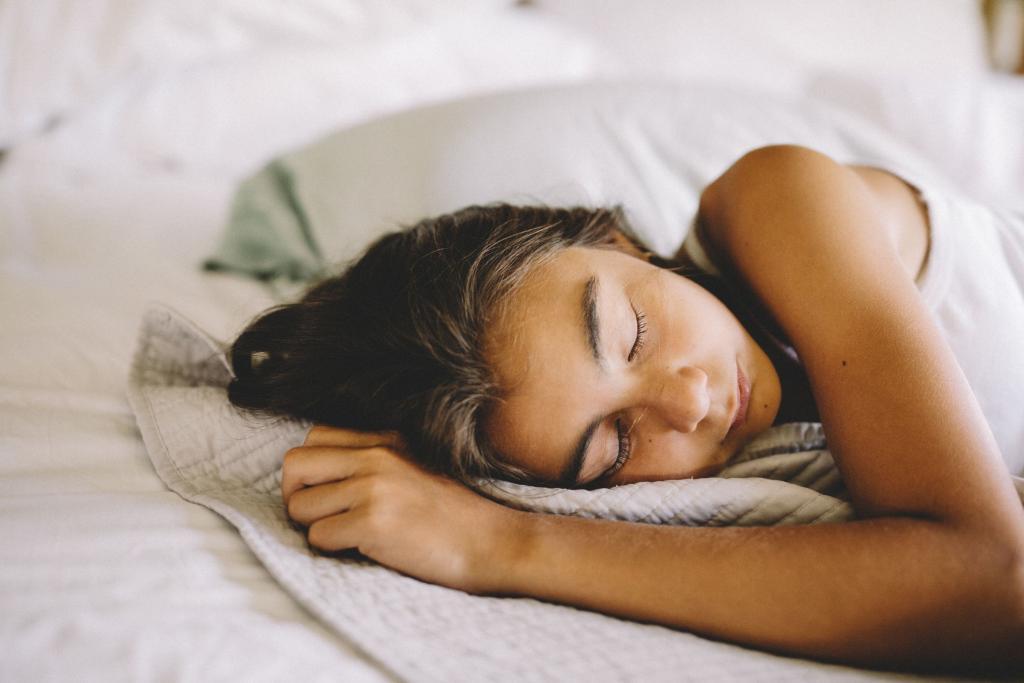
How to Sleep Better
Keeping a consistent sleep pattern is one of the most crucial things you can do in order to get a decent night’s rest. Make it a point to go to bed and wake up at the same time every day, even on weekends and holidays, in order to receive at least seven hours of sleep.
As the last step, set up a peaceful night ritual, which could include anything from soaking in a warm bath to listening to soothing music or the sounds of nature. Tools for self-care should be peaceful and silent. In order to help youngsters go asleep at night, establishing a bedtime ritual is essential.
While getting ready for bed, try to keep your light exposure to a minimum. Cell phones, televisions, tablets, video games, and computers are all included in this light. At the very least, turn them off 30 minutes before going to bed. Try to practice your nighttime ritual in dim light if you can. Reading or watching television in your bedroom is a no-no.
Your bedroom should be a place where you can relax and have sex with your significant other. Your brain will begin to feel at ease as soon as you step into the room because of this practice. The space should be cozy, peaceful, and well-lit. The quality of your sleep can be much improved if you sleep on freshly laundered linens. Lavender or other calming essential oils might help some people’s bedrooms seem more restful.
Preparation for sleep should not include a heavy meal or alcoholic beverage. It can be difficult to fall asleep if your digestive system is occupied. It’s also possible to have heartburn and indigestion if you lie down flat after a big meal. A small, high-protein snack is the best option if you must eat something at all. In the evening, limit your consumption of all liquids, from water to alcoholic beverages. You’re more likely to wake up in the middle of the night to use the restroom if you drink heavily after 6 p.m.
Caffeinated beverages and delicacies like coffee, black tea, and chocolate should be avoided late in the day to prevent sleep disruption.
A Good Night’s Sleep Can Help You Fight Viruses
Our immune system relies heavily on sleep now more than ever before. A healthy diet, exercise, and adequate sleep all contribute to a stronger body’s ability to fight off illness. A person’s ability to recover from illness might be influenced by their quality of sleep. Lack of sleep, on the other hand, might compromise one’s immune system, leaving one more vulnerable. People who don’t get enough sleep are more likely to become ill after being exposed to a virus, such as the common cold or the Coronavirus.
Some of our basic necessities may be overlooked during these difficult times. COVID-19 has caused a slew of alterations to people’s everyday routines, and many are finding it difficult to cope. From the exhaustion and exhaustion of healthcare personnel. As a parent at home with young children, you’re constantly trying to entertain them. Or those that spend their days and nights in front of the television or Doomscrolling.
When we are under these kinds of pressures, it can have a big effect on how well and how long we can sleep. Sleep deprivation may have a devastating effect on our physical and mental well-being at a time when we need to be our most alert and focused. Sleep deprivation impairs the immune system’s effectiveness. Obesity, diabetes, and cardiovascular disease are all risks that are exacerbated by chronic sleep deprivation.
More than 35 percent of adults in the United States sleep less than seven hours per night, according to the Centers for Disease Control and Prevention (CDC). Seven to eight hours of restful sleep per night is considered ideal for the majority of adults. Nine to ten hours of sleep is required by teenagers. Children of school age may require up to ten hours of sleep a night.
It’s easy to overlook how our everyday routines affect our capacity to get a good night’s sleep. Your sleep habits and routines might help you get the most out of your nighttime sleep. It also includes making your sleeping environment as comfortable as possible so that you can unwind and sleep soundly at night.
Our Guidelines To Sleeping Well During the COVID-19 Outbreak
There are a few things that may be done to improve sleep during the coronavirus pandemic, despite the tremendous hurdles.
Don’t give up if your efforts don’t provide results right away. Getting your sleep under control may take some time, and you may need to make some adjustments to these guidelines based on your own situation.
Set Your Schedule and Routine
Routines can help maintain a sense of normalcy even in times of uncertainty. Health experts have long suggested avoiding drastic changes in your daily sleep schedule because it’s easier for your mind and body to adjust to a regular schedule.
The following should be included in your everyday routine:
- Set an alarm to wake you up at a specific time each day, rather than relying on the snooze button.
- It’s time to wind down and get ready for bed, so make the most of it. Light reading, stretching, and meditating are all examples of activities that can be done before bedtime. With the coronavirus epidemic causing so much anxiety, it’s a good idea to set aside extra time each night to wind down.
- Try to stick to a regular bedtime routine, such as turning off the lights at the same time each night.
Sleep and getting ready for bed are two of the most important aspects of maintaining a healthy sleep schedule, but there are other ways to keep track of time throughout the day.
- Even if you don’t plan on leaving the house, showering and getting dressed are still necessary.
- Maintaining a consistent eating schedule.
- Setting aside specified time slots for both work and physical activity.
Reserve Your Bed for Sleep
It is important to associate your bed with sleep, according to sleep specialists. As a result, they propose that you exclusively engage in sleep and sex in your bed.
Therefore, working from home should not include working from one’s mattress or a chair. It also means that you shouldn’t watch a movie or a series on your laptop in bed.
If you’re having trouble sleeping, don’t toss and turn for more than 20 minutes at a time. As an alternative, get out of bed and do something calming in dim light before attempting to fall asleep in your current sleeping position.
It’s a good idea to change your sheets, fluff your pillows, and make your bed on a regular basis to keep your bedding fresh and welcoming. Be careful to choose the ideal mattress for your body type and tastes, as well as sheets or any other sleep items that require an upgrade, if you’ve been considering renewing your bedroom setting with a bed. It may be a good idea to do so at this point.
See the Light
Xem thêm : How To Fix Sleep Schedule? Helpful Tips To Remember Update 07/2025
Exposure to light helps our bodies manage their sleep cycles in a healthy manner. Light-based cues may have a good effect on your circadian rhythm if you are dealing with daily life interruptions.
- Spend as much time as possible in the sunlight. Circadian rhythms can benefit from natural light even when the sun isn’t shining brightly. Many individuals prefer to spend their mornings outside, and it’s also a chance to catch some fresh air.
- Open your windows and blinds as much as possible during the day to allow natural light into your home.
- Keep an eye on how much time you spend in front of a screen. Devices that emit blue light (e.g. phones and tablets) have been shown to disrupt natural sleep-promoting mechanisms in the body. The hour before going to sleep is the best time to avoid using these devices. Device settings and customized programs can also be used to decrease or block blue light.
Be Careful With Naps
The temptation to take extra naps may arise if you’re at home all day. Instead of napping carelessly, set up a nap routine that you can stick to.
While napping can help us sleep better, it also has numerous other benefits, such as enhancing our memory and regulating our moods. A nap lasting more than 20 minutes can leave you feeling drowsy, while a shorter nap isn’t long enough to gain the benefits of napping.
Stay Active
With all that’s going on in the world, it’s easy to forget about the need for regular daily exercise, but regular daily exercise offers various advantages, one of which is improved sleep. Excessive physical activity before night might have a negative impact on one’s sleep quality.
A fantastic choice is to take a walk while keeping a safe distance from other people. To help you get started, there are a plethora of internet tools for all sorts and degrees of fitness available. There are several live-streamed free classes being offered by fitness and yoga studios during this period of social isolation.
Practice Kindness and Foster Connection
Kindness and connection can alleviate stress and its negative consequences on mood and sleep, even if they don’t seem critical.
Consider finding some good stories, such as how people are helping each other through the pandemic, in the midst of all the horrible news. It is possible to keep in touch with friends and family despite the necessity for social separation by using technology.
Utilize Relaxation Techniques
Finding techniques to unwind can help you get a better night’s sleep. A few examples of relaxation practices that you can incorporate into your daily routines include deep breathing, stretching, yoga, mindfulness meditation, soothing music, and quiet reading. If you’re not sure where to begin, look into applications like Headspace and Calm, which feature beginner-friendly meditation sessions.
Avoiding information overload on the coronavirus epidemic is another way to relax. Techniques such as these can be used to help:
- Restricting yourself to just a few reputable news sources and visiting them only at certain times each day.
- Cutting down on your social media scrolling time. Many programs can help you track and even ban your time spent on social media sites and apps each day if you’d like to assist in this endeavor.
- Plan ahead of time to avoid discussing the coronavirus on the phone or video calls with loved ones.
Watch What You Eat and Drink
Good sleep can be encouraged by a healthy diet. When you’re under a lot of pressure and worried about the future, it’s tempting to overindulge in fatty or sugary meals or to let happy hour extend into the early hours of the day.
Caffeine and alcohol can both affect the quantity and quality of your sleep, so use caution while consuming them.
The best diet for you is one that includes plenty of vegetables and fruits, as well as lean meats, however, everyone’s needs are different.
Contact Your Doctor if Necessary
A doctor should be seen if you are experiencing significant or worsening sleep or other health problems. Many doctors are making themselves more accessible via telemedicine so that patients don’t have to physically visit their offices to discuss their concerns.
Tips to getting good night’s sleep during coronavirus from VicHealth CEO Dr Sandro Demaio:
- Go for a jog or a stroll or perform some other sort of physical activity outside as much as possible to get some fresh air. It’s best to leave your shades at home if you’re going to be outside for any length of time.
- Maintain a consistent sleep schedule. Do not alternate between early and late bedtimes, even if you take regular naps during the day. Find a routine that works for you and stick to it.
- Make your bedroom sleep-friendly by making sure it’s dark enough and not too warm. The ideal temperature for a good night’s sleep is between 15 and 19 degrees Fahrenheit.
- The hour before going to sleep should be free of electronic gadgets, so try to limit your screen time as much as possible. Listening to the radio or downloading an audiobook or podcast will help you wind down your mind and prepare you for sleep. Older phones and devices may not have a ‘night mode,’ which reduces the brightness of the screen’s light to make it easier on the eyes.
- Caffeine, which is found in coffee, is a stimulant to the central nervous system, which keeps us up and attentive, therefore avoiding the afternoon cup. If you drink coffee or other caffeine-containing products later in the day, it may be more difficult for you to fall asleep. A piece of fruit and a cup of herbal tea can be a healthy alternative. Eat a variety of enjoyable, nutritious meals and snacks throughout the day.
- Despite the fact that most individuals are returning to their typical work schedules, don’t fall into the trap of working from your bed if you are still working from home. When you’re in bed at night, your body will begin to assume it’s time to go to work.
It’s time to try something new if you’re having trouble falling asleep or your sleep pattern has changed since being infected with the coronavirus. You may be better rested at night if you adopt a new sleep pattern or develop new habits throughout the day.
Nguồn: https://www.sleepyheadpillowcase.com
Danh mục: Sleep Advisors
